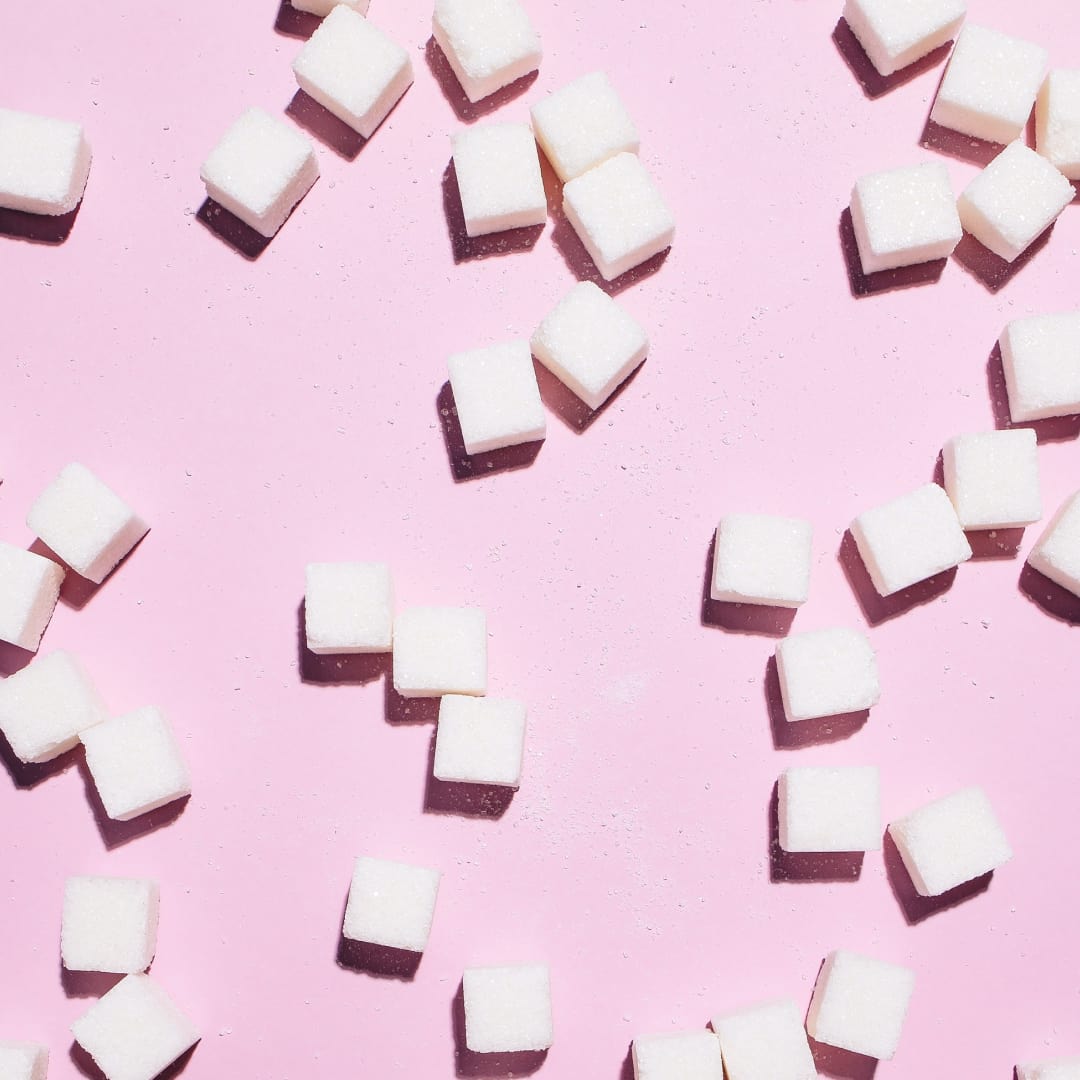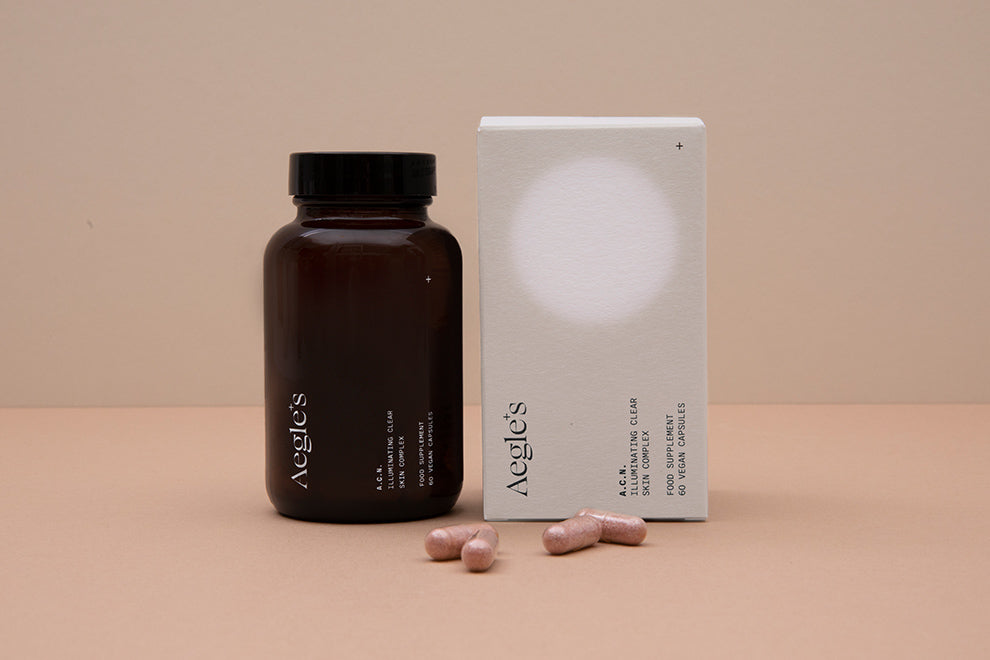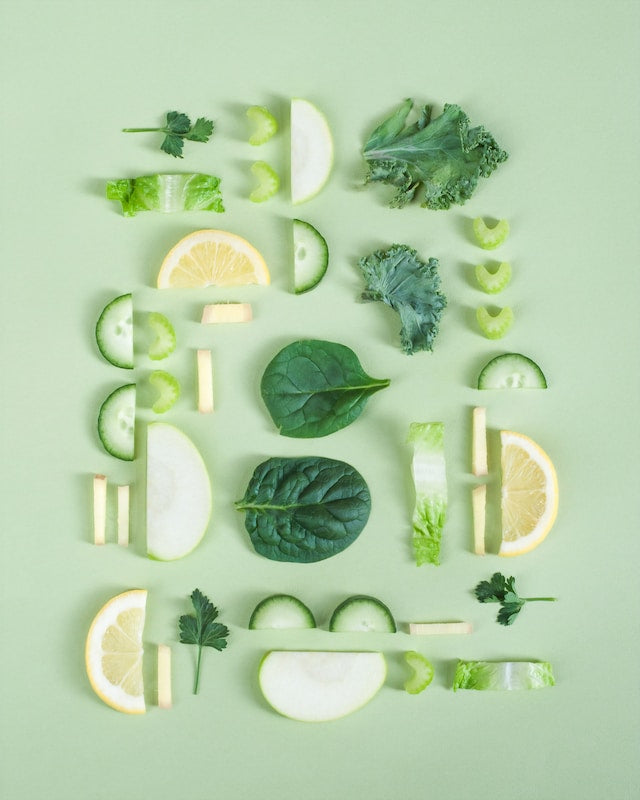

Acne is often referred to as “diabetes of the skin”. This is because there is a direct connection between how our body responds to sugars, and acne.
Sugar and its relationship to acne is a slow and complex connection that requires a consistent diet high in simple carbohydrates. It’s the sugars themselves in the carbohydrates that creates this connection.
So, in order to gain a complete understanding of the relationship between diet and acne, it’s important to first understand what carbohydrates are, and what the difference is between simple and complex carbohydrates.
What are carbohydrates?
Carbohydrates are an essential part of our diet, and they are the body's main source of energy. Carbohydrates can be categorised as “complex” and “simple” because of how our body processes them.
Simple carbohydrates include sugars, fruit, cow’s dairy and processed grains. Complex carbohydrates include whole grains, beans and legumes, and vegetables. Our diet is at its best made up of predominantly complex carbohydrates.
Complex carbohydrates take longer for the body to digest, and provide a more stable source of energy. In contrast, simple carbohydrates are quick for the body to digest. They create a short spike in blood glucose, and a short lasting source of energy.
Our body is able to deal with having short spikes of blood glucose and short bursts of energy. However, when the spikes of blood glucose are consistent and over a long period of time, they can be harmful to the body.
For instance, when we consume a regular diet high in simple carbohydrates, our body may stop responding properly to insulin over time. This results in a condition called insulin resistance
What is insulin resistance?
Any food we eat is broken down into nutrients in our stomach. One of these nutrients is glucose, which is a simple and important sugar that provides us with vital energy. When glucose enters our bloodstream, our blood sugar level rises. In response, insulin is released by the pancreas, which helps to regulate this blood sugar level. This is a healthy and normal process within the body.

However, insulin resistance occurs when our body becomes resistant to the insulin that our pancreas is producing. As a result glucose remains in our bloodstream, which causes our blood sugar levels to remain high. Having blood sugar that remains high over an extended period of time can lead to a range of health problems. One of these being chronic acne in adult women.
Therefore, a diet consistent in high levels of simple carbohydrates is a direct cause of insulin resistance. Other causes include obesity, chronic stress, an inactive lifestyle and certain medications.
Temporary insulin resistance can be caused by puberty and pregnancy. Menstruating women also experience temporary insulin resistance for a few days leading up to their cycle each month. You may have noticed that you have been craving sugars and carbohydrates during this time.
Insulin resistance can typically have no symptoms, but it can cause imbalances in the body. One of these imbalances is an elevation of 5a-Reductase (5AR) activity, which is an enzyme that catalyzes the conversion of the male sex hormone testosterone into Dihydrotestosterone (DHT).
DHT and acne
With elevated levels of 5AR, more testosterone is converted into DHT. In women, these elevated levels of DHT are one of the leading causes of adult acne. DHT is much more potent than testosterone. So when a woman’s levels of DHT are high, she can experience more androgenic activity such as a greater increase in sebum production in the skin, and therefore acne.
Aside from acne, women with elevated DHT may also experience hirsutism (increased body, facial and pubic hair growth), and an irregular menstrual cycle.
Will I get acne from eating simple carbohydrates?
If your general diet is low in simple carbohydrates, then it’s unlikely that your acne condition is linked to your diet. You will also not get acne if you eat high levels of simple carbohydrates on the odd occasion. In order to get acne from your diet, you need to be eating simple carbohydrates consistently and over an extended period of time.
Fruits are packed full of essential nutrients but they are also high in sugars. It is always better to consume fruits in moderation. If your acne is linked to diet, it is also bene cial to opt for low sugar fruits such as berries, lemons, limes, grapefruit and apricots.
Insulin-Like Growth Factor 1 (IGF-1)
IGF-1 is another hormone that affects how your body metabolises sugars. IGF-1 works together with insulin to regulate the levels of glucose (sugars) in the blood. Working with glucose and insulin is not the main role of IGF-1, but it is one of its many connections.
Eating a consistent diet high in simple carbohydrates and cow’s dairy can raise the level of IGF-1 in the body. An elevated level of IGF-1 is associated with insulin resistance, as well as increase in 5a-Reductase Activity. Both can result in higher levels of the male sex hormone DHT, and therefore acne.
In Conclusion
A consistent diet high in simple carbohydrates such as sweet foods, white processed grains, cow’s dairy and high sugar fruits, is a direct cause of acne in adult women. This connection is through a complex pathway of reactions in the body, leading to elevated levels of the male sex hormone DHT, and therefore increased sebum production. And when there is increased sebum production, there is always a much higher possibility of acne.

Start your journey to heal your skin now.
- Contains ingredients clinically proven to improve blemishes and skin radiance.
- Formulated by one of the world's leading skin practitioners.
- The only supplement that works for the three main causes of blemishes, blackheads and oily skin.






